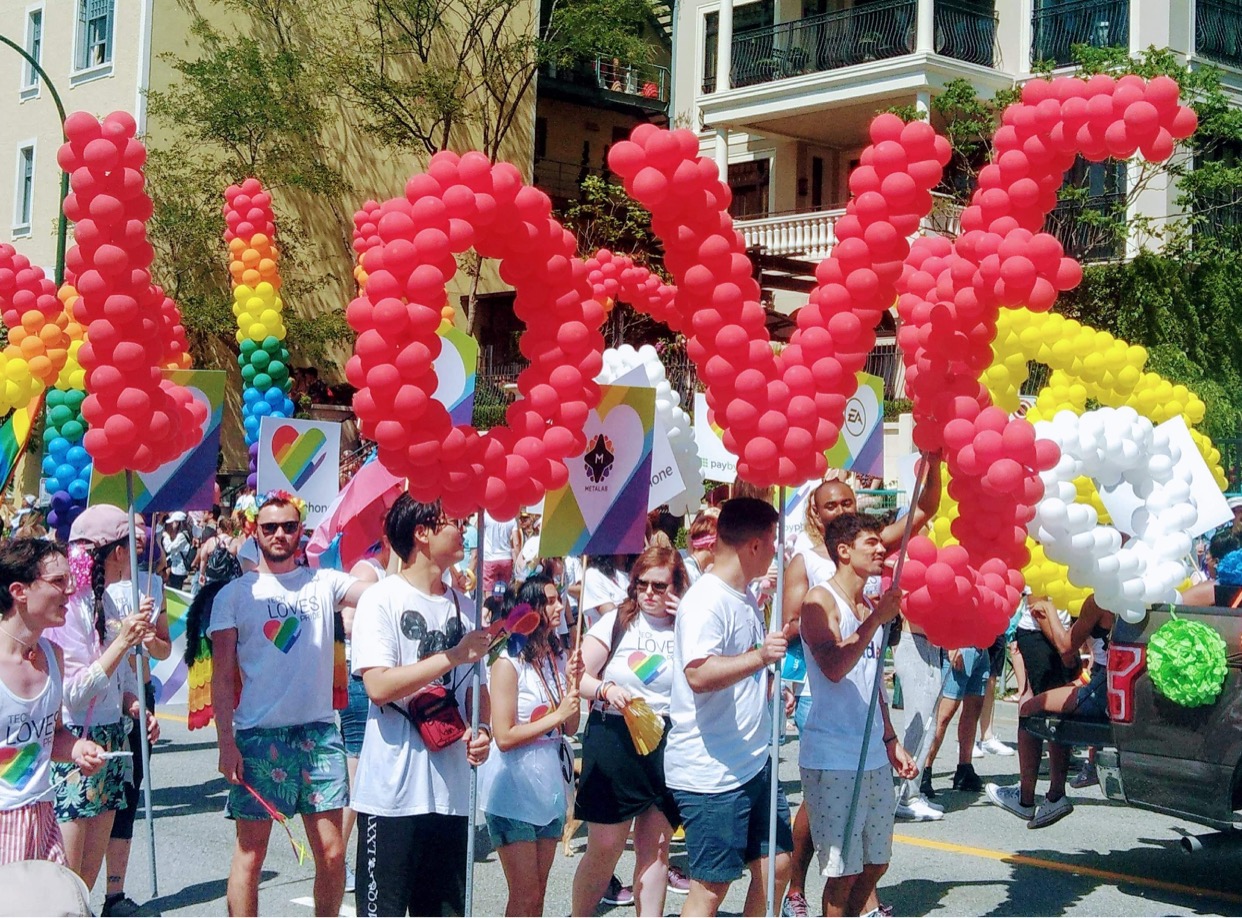
Pride is more than just a concert – make sure you’re celebrating its origins and history
Pride started as a protest and we can’t let that change
Pride is the best weekend of your year for a reason. But it’s important to know and remember Pride’s origins and history when you and your pals celebrate.
It’s easy to get swept up in the party of Pride. The vibes are always immaculate. The lineups are always half filled with artists you’re absolutely dying to see and the other half is camp huns that you forgot existed, apart from that one big song they had in 1998. It’s all part of the fun.
But as Pride events get bigger and bigger, signing up bigger artists to perform and and tickets selling out as fast as Glasto in some cities, there definitely is a danger of the true essence of Pride being left behind. The debate rages on as ticket prices raise and some claim that people are getting priced out of celebrating.

Stonewall Inn – Via littlenySTOCK on Shutterstock.
Pride history began at the Stonewall Inn in June 1969, lead by Marsha P. Johnson, a black trans woman and a very important figure in queer history. If we were taught our history in school like we ought to be, she’s one of the most important and crucial women who kickstarted the fight for our rights. The riots began after the New York police lead a raid on the queer venue and demanded to conduct a physical inspection of patron’s bodies to “check the sex”.
As we celebrate Pride Month in June to commemorate the events of Stonewall, we also have the history of Pride events themselves. The first Pride took place in New York City on the 28th June 1971, organised by bi activist Brenda Howard. The first ever Pride event was named after the street where the Stonewall Inn still resides to this day. It was always a day of celebration as much as it was protest, but in 1971 we had a lot further to go in our fight for equality than we do today.

Therein lies the danger of forgetting the origins of Pride: We’ve become complacent. Because we have progressed so far with so many things, we see so much more LGBTQ+ representation on TV and have marriage equality and freedoms, it’s easy to just go to Pride for a good day out. Make sure you attend the march, not just the acts. Even if you feel like you have equality, we’re marching and protesting for the people across the world who face persecution, imprisonment and death for their sexuality. There are still 69 countries where homosexuality is illegal, and eight where it’s punishable by death. Make sure you march for them. That’s where the protest remains.
We should also be marching for our LGBTQ+ brothers and sisters who fought for our rights vocally and risked their lives and reputations in marches throughout the history of Pride to get us where we are today. Not just gay and lesbian people, but our trans, non-binary and intersex communities who still face more persecution than we do even in the UK in 2021. We march for the people who had to endure Section 28, the act Margaret Thatcher’s government enforced that made it illegal to “promote homosexuality” in schools and had devastating impact on a generation of young LGBTQ+ people who grew up learning and believing that their authentic self was something to keep hidden and quiet.

Should Prides be booking big names that potentially price people out of the acts? It’s a difficult debate, and one that rages on with Manchester Pride over the last few years. The parade, march and entry to the village is free, but to see all the big name acts you have to pay and go to a separate area. This change has caused much debate. The essence of Pride remains free, but it does create division between people who can afford the concert and people who can’t. If you wanted to go to Pride with your mates but couldn’t afford the concert part and they all went, how would you feel? Booking the bigger names is great and so are the memories you make, but remember the free activities too and what Pride is really about.
Enjoy Pride. Dance along to Zara Larsson with your mates, I certainly will be! But remember what you’re really there for and think on the history of Pride. Celebrate and uplift all corners of our community, especially trans people and people of colour who still experience so much hate. Remember proudly how far we’ve come and remember the work we still have to do.
Featured image before edits via Hannah Voggenhuber on Unsplash.
The Tab’s Pride reporting series is putting a focus on highlighting LGBTQ+ issues and celebrating queer voices across UK campuses.
If you or someone you know has been affected by this story you can contact Switchboard, the LGBTQ+ helpline, on 0300 330 0630 or visit their website. You can also find help through The Mix.
If you’ve got a story you’d like to tell us – whether it’s an incident of homophobia on campus, an experience you’d like to share, or anything you think we should hear, get in touch in confidence by emailing [email protected]
Read more from The Tab’s Pride series:
• Take this quiz to find out how much you actually know about LGBTQ+ history
• Unis aren’t actually abandoning Stonewall, in Pride Month, over a trans rights controversy
• We asked young LGBTQ+ people to tell us their queer icons and heroes





















